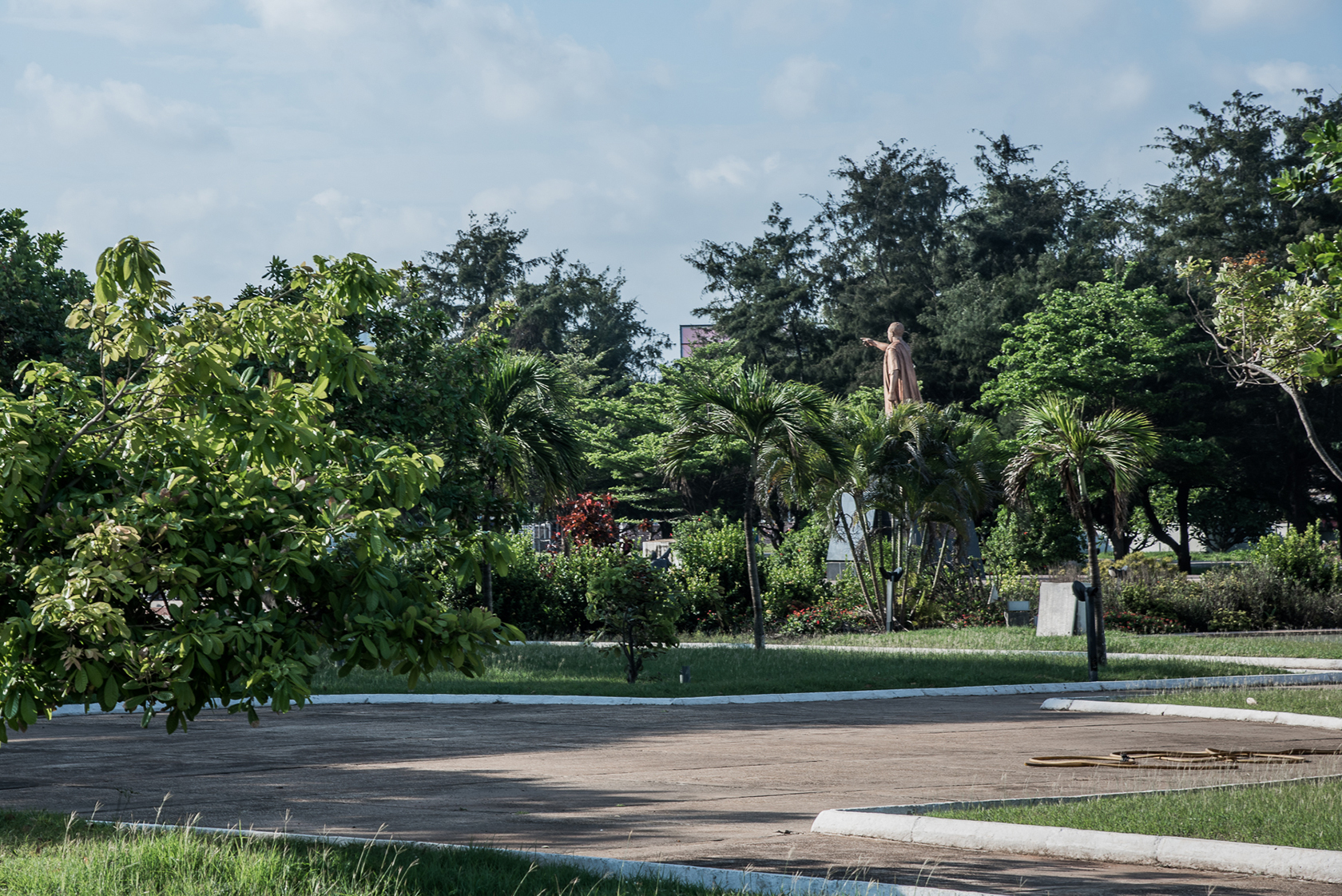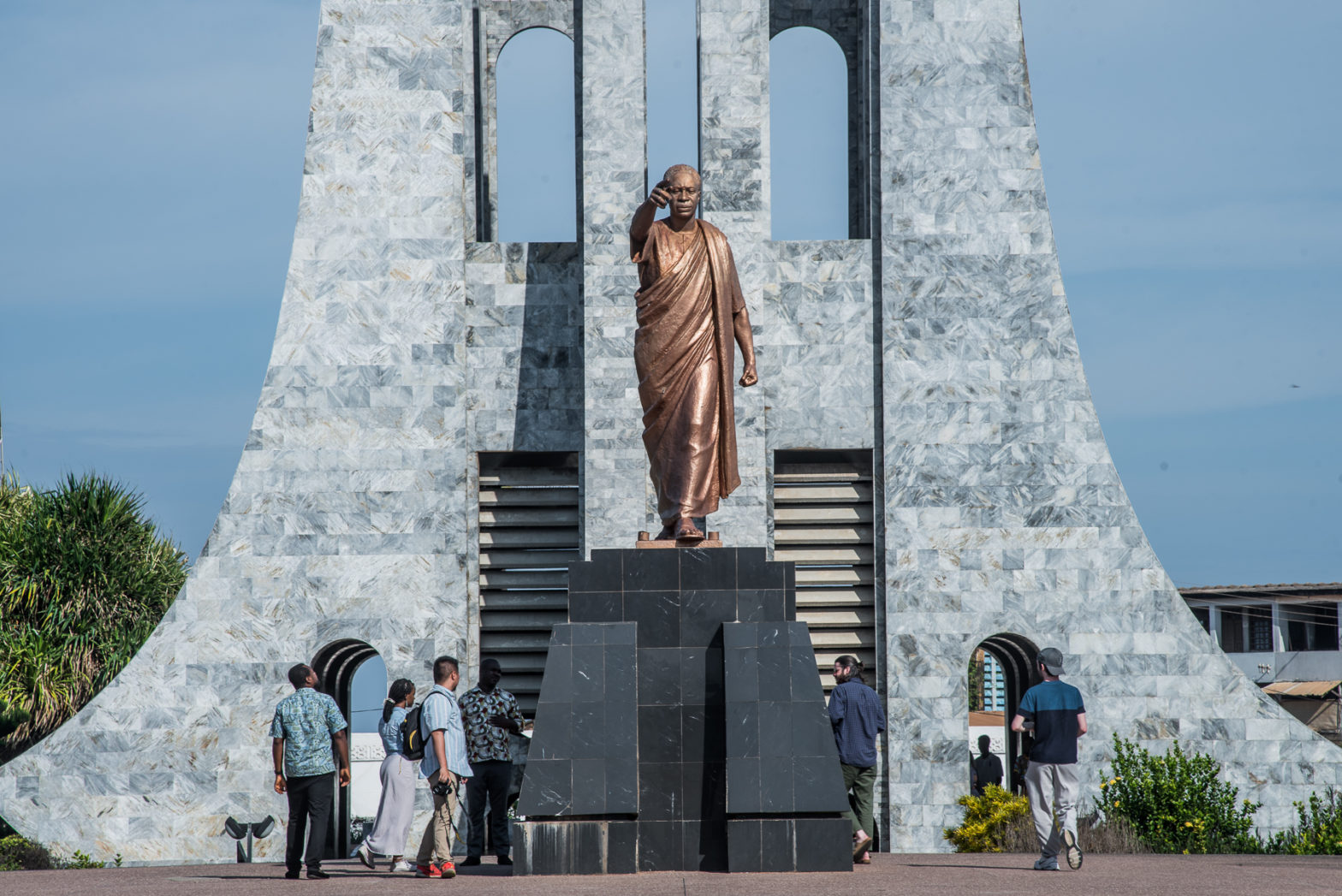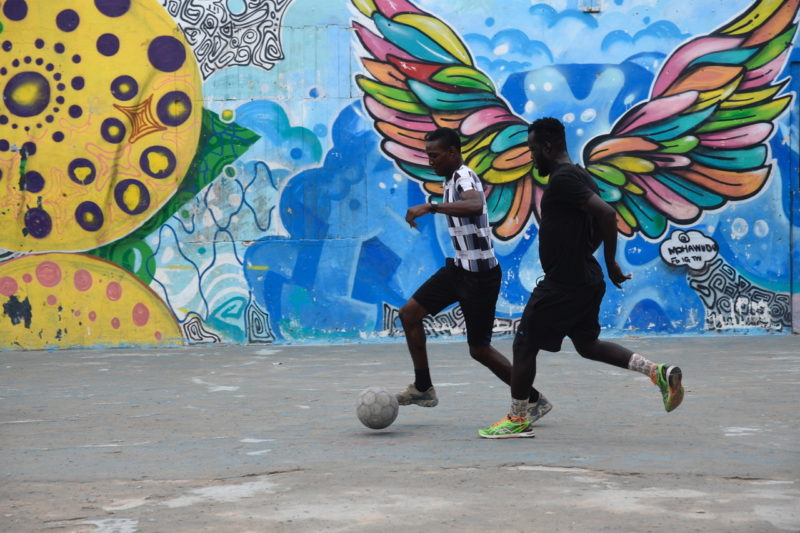By Sam Klein
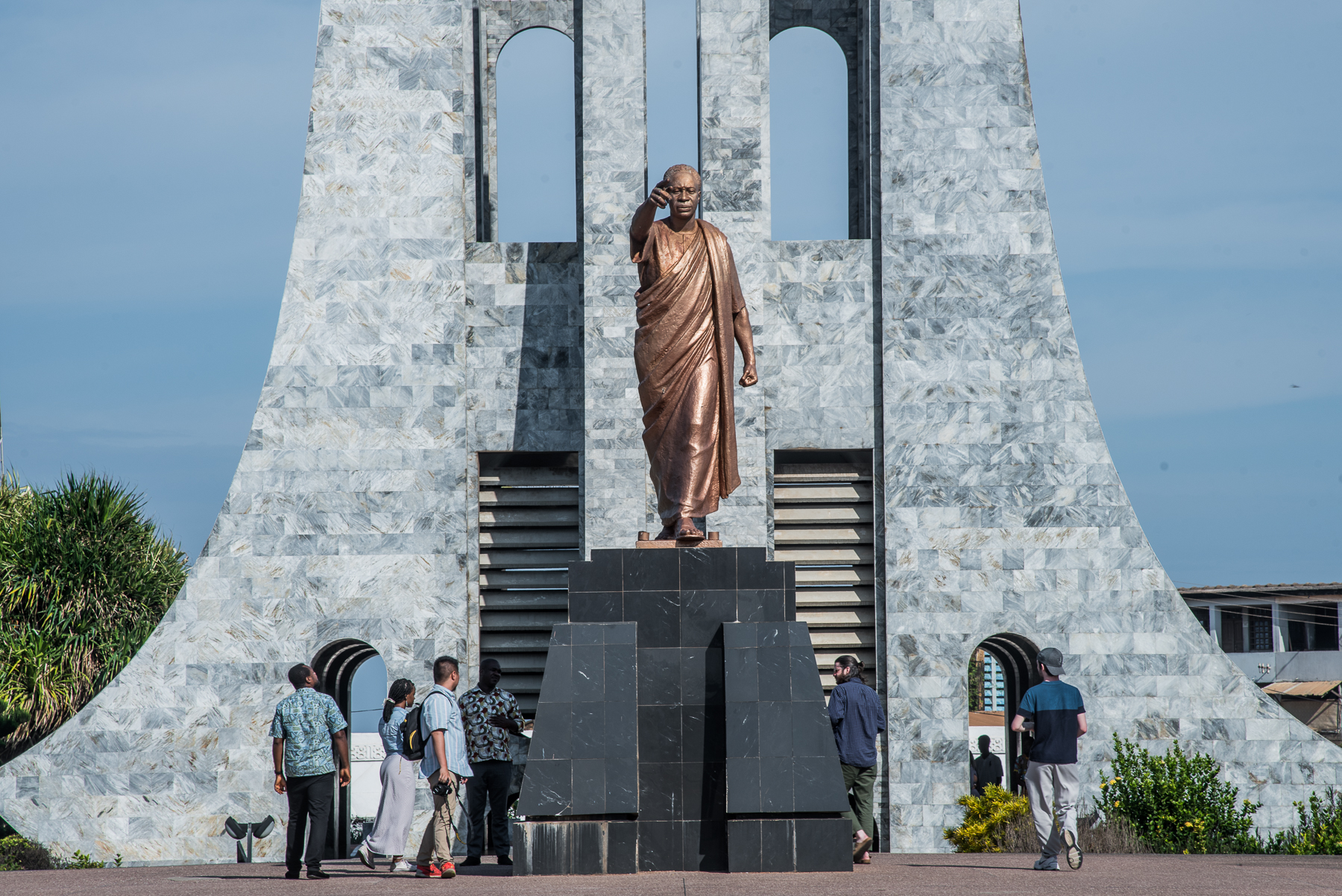
Where the British polo grounds once stood in Accra, there is now a bronze statue of Dr. Kwame Nkrumah pointing the way forward. The space, once off-limits to Ghanaians, now celebrates the nation’s first president and the face of Pan-Africanism.
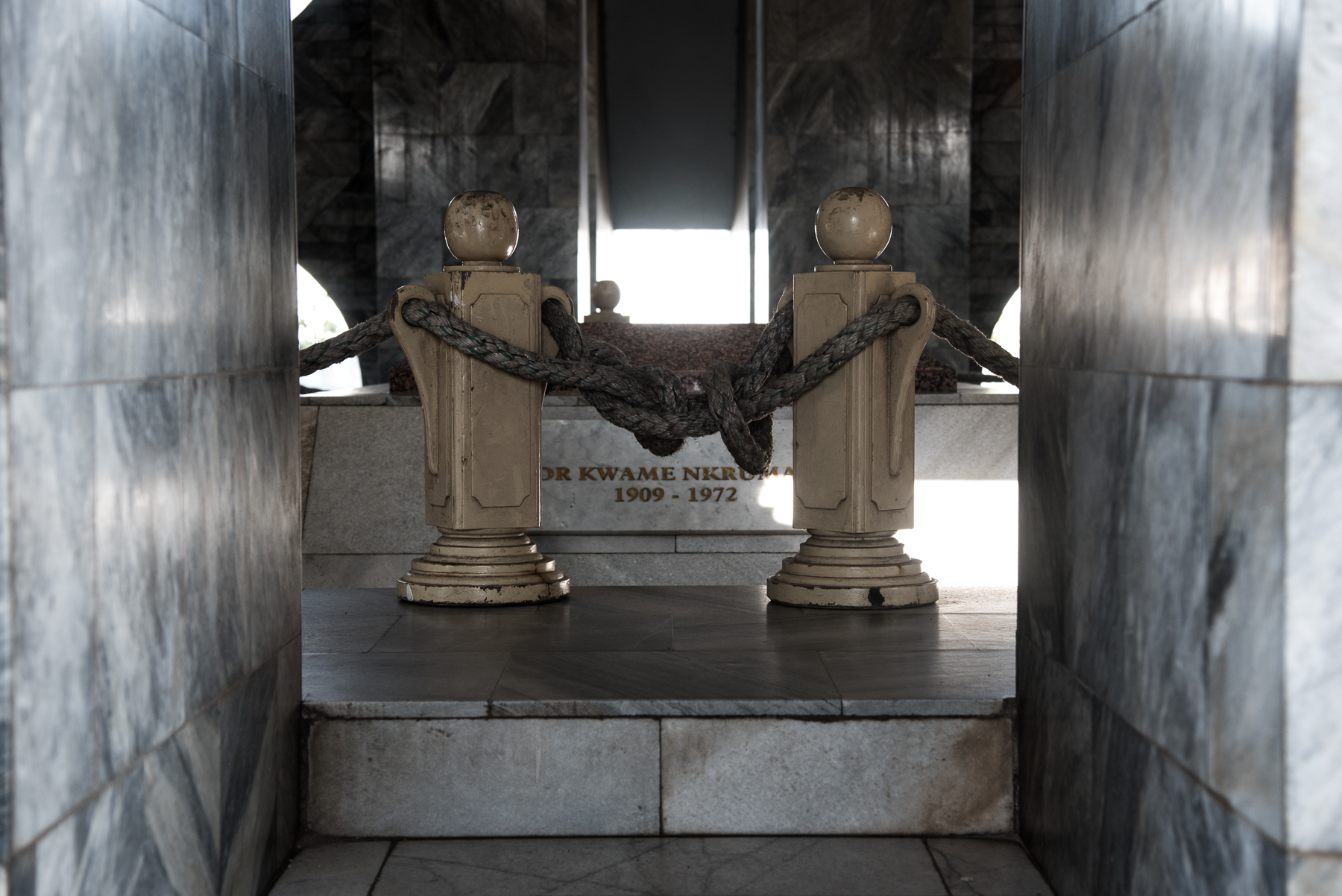
The statue commemorates the slogan of Nkrumah’s Convention People’s Party (CPP): “Forward ever, backward never.” It is also located where Nkrumah gave the 1957 speech declaring independence from British rule.
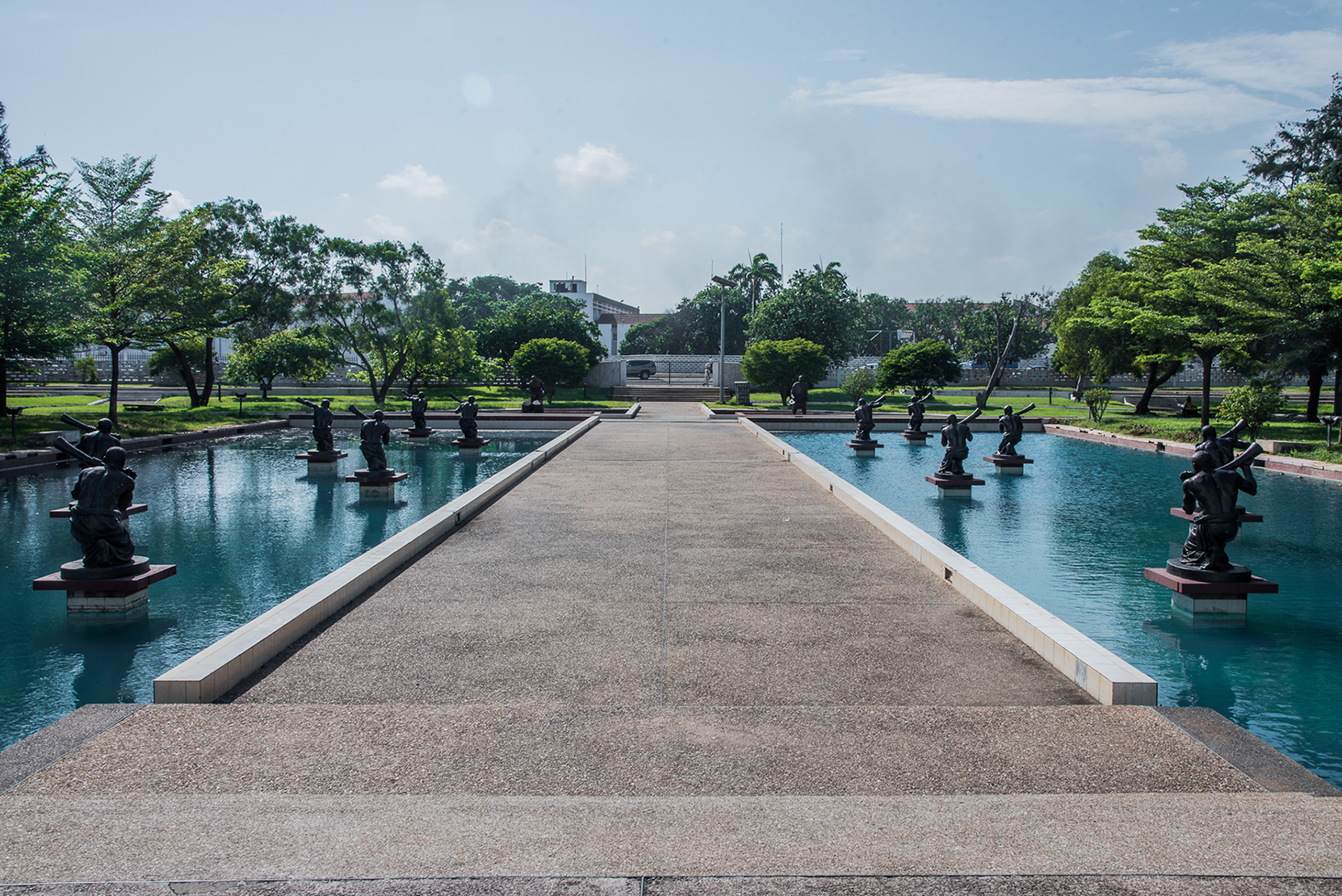
Behind the statue is Nkrumah’s mausoleum, though it is his third resting place. He was first embalmed in Guinea — where he lived most of the end of his life in exile following the 1966 coup that ousted him from power — and buried in his birthplace, Nkroful, located on the coast of Ghana far west of Accra.
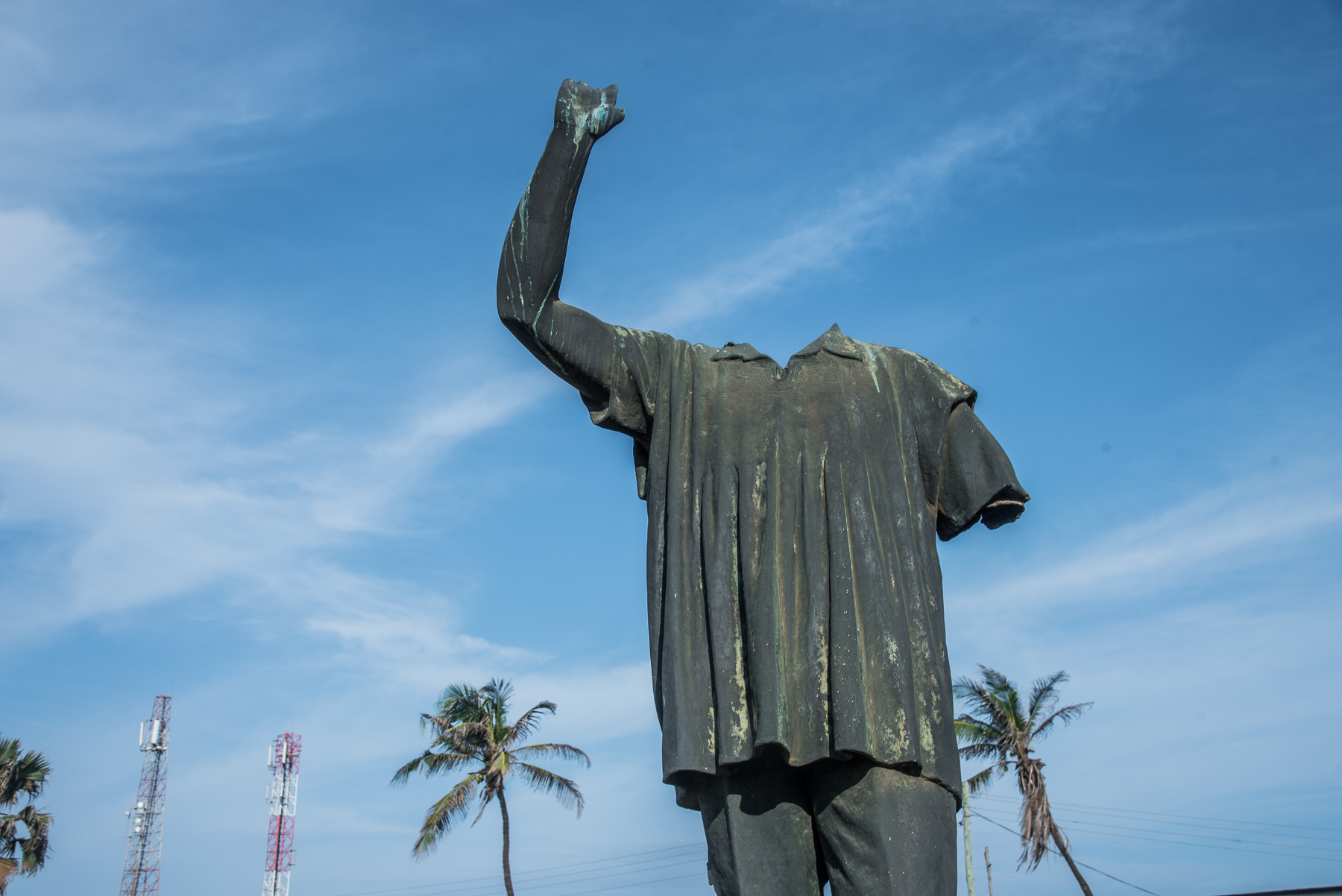
The complex includes a museum, with a number of artifacts — such as Nkrumah’s writing desk — and photographs, primarily documenting his meetings with foreign leaders from Kennedy to Khrushchev. To the side of the museum is the statue which once stood in front of Parliament before being vandalized and decapitated during the coup. The statue’s head was returned in 2009 by one of Nkrumah’s followers who had hidden it for decades. Despite the efforts of three military takeovers, Nkrumah’s legacy remains as entrenched in Ghanaian society as the collective memory of its colonial history.
